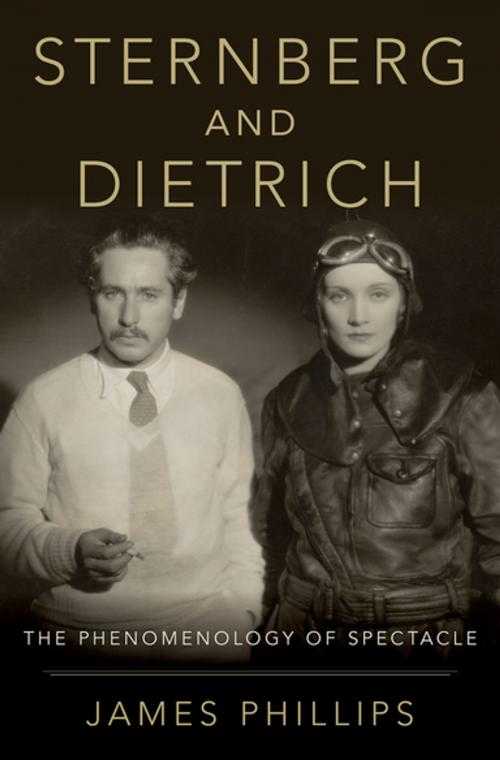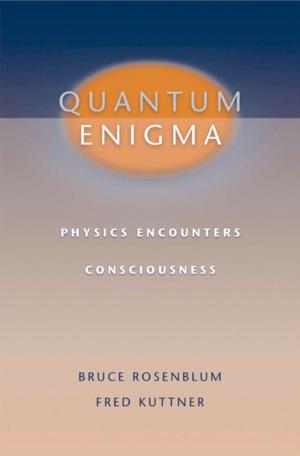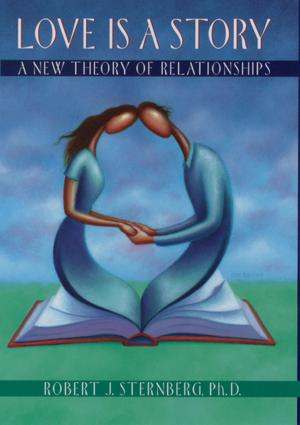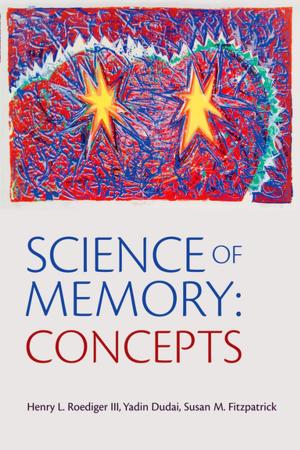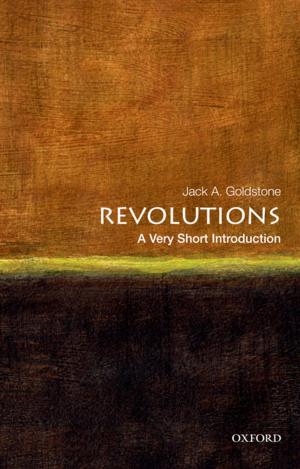Sternberg and Dietrich
The Phenomenology of Spectacle
Nonfiction, Entertainment, Film, Direction & Production, Performing Arts| Author: | James Phillips | ISBN: | 9780190915261 |
| Publisher: | Oxford University Press | Publication: | February 1, 2019 |
| Imprint: | Oxford University Press | Language: | English |
| Author: | James Phillips |
| ISBN: | 9780190915261 |
| Publisher: | Oxford University Press |
| Publication: | February 1, 2019 |
| Imprint: | Oxford University Press |
| Language: | English |
James Phillips's Sternberg and Dietrich: The Phenomenology of Spectacle reappraises the cinematic collaboration between the Austrian-American filmmaker Josef von Sternberg (1894-1969) and the German-American actor Marlene Dietrich (1901-92). Considered by his contemporaries one of the most significant directors of interwar Hollywood, Sternberg made seven films with Dietrich that helped establish her as a style icon and star and entrenched his own reputation for extravagance and aesthetic spectacle. These films enriched the technical repertoire of the industry, challenged the sexual mores of the times and notoriously tried the patience of management at Paramount Studios. Sternberg and Dietrich: The Phenomenology of Spectacle demonstrates how under Sternberg's direction Paramount's sound stages became laboratories for novel thought experiments. Analysing in depth the last four films on which Sternberg and Dietrich worked together, Phillips reconstructs the "cinematic philosophy" that Sternberg claimed for himself in his autobiography and for whose fullest expression Dietrich was indispensable. This book makes a case for the originality and perceptiveness with which these films treat such issues as the nature of trust, the status of appearance, the standing of women, the ethics and politics of the image, and the relationship between cinema and the world. Sternberg and Dietrich: The Phenomenology of Spectacle reveals that more is at stake in these films than the showcasing of a new star and the confectionery of glamour: Dietrich emerges here as a woman who is at ease in the world without being at home in it, an image of autonomy whose critical potential has yet to be realized, let alone exhausted.
James Phillips's Sternberg and Dietrich: The Phenomenology of Spectacle reappraises the cinematic collaboration between the Austrian-American filmmaker Josef von Sternberg (1894-1969) and the German-American actor Marlene Dietrich (1901-92). Considered by his contemporaries one of the most significant directors of interwar Hollywood, Sternberg made seven films with Dietrich that helped establish her as a style icon and star and entrenched his own reputation for extravagance and aesthetic spectacle. These films enriched the technical repertoire of the industry, challenged the sexual mores of the times and notoriously tried the patience of management at Paramount Studios. Sternberg and Dietrich: The Phenomenology of Spectacle demonstrates how under Sternberg's direction Paramount's sound stages became laboratories for novel thought experiments. Analysing in depth the last four films on which Sternberg and Dietrich worked together, Phillips reconstructs the "cinematic philosophy" that Sternberg claimed for himself in his autobiography and for whose fullest expression Dietrich was indispensable. This book makes a case for the originality and perceptiveness with which these films treat such issues as the nature of trust, the status of appearance, the standing of women, the ethics and politics of the image, and the relationship between cinema and the world. Sternberg and Dietrich: The Phenomenology of Spectacle reveals that more is at stake in these films than the showcasing of a new star and the confectionery of glamour: Dietrich emerges here as a woman who is at ease in the world without being at home in it, an image of autonomy whose critical potential has yet to be realized, let alone exhausted.
